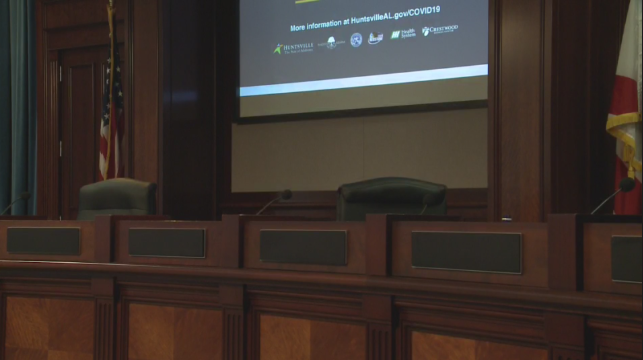It is important for students to build their credit wisely while in college. Credit cards become a little harder to obtain upon graduation until one can provide proof of income and financial stability.
Credit Card Insider (https://www.creditcardinsider.com/) is a website that helps students find credit cards that fit their budget and needs; it helps users choose the right credit card that can help them build good credit. The website has tools and resources to help people stay on track with their credit and not fall behind on their payments.
Credit Card Insider is described by Jacob Lunduski, Director of Community Outreach for Credit Card Insider, as being “created with the goal to educate people to use credit cards to their advantage. This stems from learning how credit cards work and how to build credit.”
Lunduski believes students can reap benefits from utilizing Credit Card Insider, as the website provides detailed information on all aspects of your finances.
“As you may have seen, we only encourage responsible and disciplined credit card use,” Lunduski said. “If you follow our content, you should be able to avoid fees and credit card debt. We don’t encourage any attempts to manipulate credit scoring systems or constantly applying and canceling cards. We offer a ‘Learn’ section of our website that teaches you everything you need to know about credit cards and how to use them. Also, we have a large breakdown of each credit card and how to get the most value out of that card. We offer a safe way to connect to the card you want to apply online. There are many fraudulent sites and links out there. We want to make sure you get the card you want safely and securely.”
An “excellent” credit score is 760-850, a “very good” score is 700-759, a “good score” is 660-669, a “fair” score is 620-659, a “poor” score is 580-619 and a “very poor” score is 500-579.
“You should always strive to have the best credit possible,” Lunduski said. “You are legally entitled to one free credit report per year from each credit bureau at https://www.annualcreditreport.com/. The important aspect of this is to build good financial habits with credit cards. These include not exceeding the credit limit provided to you, paying your credit card in full and on-time every month and buying only what you can afford. Responsible credit card use will improve your credit report and credit scores over time.”
Lunduski believes building your credit responsibly lays the foundation for your financial future.
“Your credit history is important for getting credit cards, various loans and smartphone plans,” Lunduski said. “Also, it has an influence on renting an apartment, getting insurance, and even getting a job. When you’re using credit cards responsibly, you’re creating great habits. It’s important to have good credit because that means you’re doing a good job of paying your bills on time.”
If credit cards are not used with discipline, however, the user is in danger of building bad credit.
Paying bills on time helps build credit. It will be especially necessary for graduating students, as they will also be required to pay back any student loans accumulated during a college education. It is very important to pay back student loans on time.
“Student loans are different than credit card debt in the sense that depending on what type of student loan you have, there may be a grace period,” Lunduski said. “This means you’re expected to start paying at a future date set by the issuer. Most grace periods are six to nine months from your graduation date. If you’re making late payments on your student loans, it can be a minor or major problem. Missed payments have a negative effect on your credit. While paying back your loans on time will help improve your credit. Most students don’t view student loan debt as a serious debt. It is one. Your repayment plan for student loans should be as aggressive as for any other debt you carry.”
In today’s society, we use bank cards and credit cards more than cash. Students need to be aware of how to budget themselves wisely and protect themselves against fraud.
“Students need to stay safe mostly when providing credit, debit or personal information online,” Lunduski said. “There are over 1 million people per year that are victims of fraud. Only shop at trusted online retailers. Use your free annual credit reports to make sure that no one is opening any accounts in your name.”
Upon graduation, if a student does not already have a job lined up, he or she will be searching for the right position. Financial security through good credit is very important, especially when applying for a job. Most companies may not hire someone if they have a low credit rating.
“If you have successfully started following the steps to build your credit, then all you have to do is continue the same habits,” Lunduski said. “As your credit builds, you can change to credit cards for people with excellent credit. These cards might charge an annual fee, but allow you to earn back the most value as you spend. As you start to pay off your student loans, make sure you are paying them on-time every month to keep your credit in good standing.”
Even if someone has bad credit, though, it is still possible to rebuild it.
“You need to take a step back and realize what you’re doing wrong,” Lunduski said. “Are you not paying your bills? Are you overspending? The hardest part is sitting down and figuring out where you went wrong. If you have debts, aggressively pay them off, and start following the rules of buying what you can only afford. If you’re missing dates, make a reminder in your phone or on your calendar to pay off the card by this date. Lastly, if you have bad credit, you can look at secured credit cards. Secured credit cards require the cardholder to fund part or all of the credit limit themselves in the form of a security deposit. Secured credit cards gives you the convenience of a credit card while improving your credit at the same time.”
This is good information in a time when we shop in a cashless society, both in the stores and online. Though people may make credit mistakes, they are repairable. Paying attention to credit scores can help secure a stable financial future and safeguard against identity theft.
The Sam Houston State University Student Money Management Center is another good program to invest time in. It teaches students how to manage bank accounts as well as obtain and maintain good credit. They can be found online at http://www.shsu.edu/dept/smmc/. They offer free consultations and free events regarding money management.

















